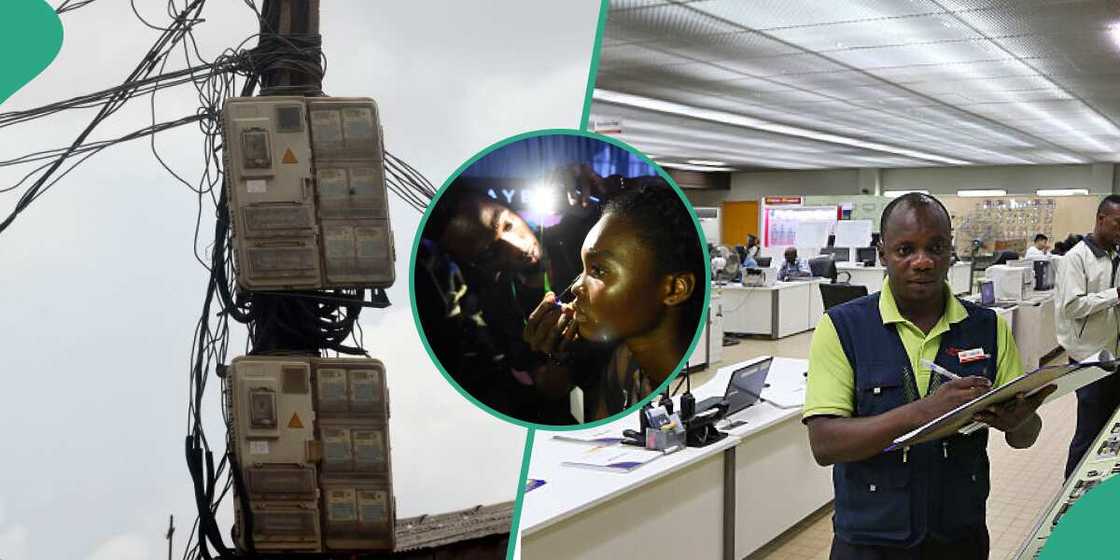“N200/kWh”: FG Set to Raise Electricity Tariffs after Increasing Gas Prices for Power Plants
- The federal government is planning to increase electricity tariffs by about 300% to slash subsidies and attract more investors
- Reports say the new tariff increase will be implemented in April, allowing urban consumers to pay more for electricity
- The government is reportedly planning to raise the tariffs from the current N68/kWh to about N200/kWh
PAY ATTENTION: The 2024 Business Leaders Awards Present Entrepreneurs that Change Nigeria for the Better. Check out their Stories!
Legit.ng’s Pascal Oparada has reported on tech, energy, stocks, investment and the economy for over a decade.
The Nigerian government reportedly plans to triple energy prices in the coming weeks to attract investment into the sector and slash the $2.5 billion subsidy it pays to keep the tariffs down.
According to reports, power companies will be allowed to increase prices to N200 per kilowatt per hour from the current N68 for urban consumers in April 2024.

Source: Getty Images
FG plans 300% tariff hike in April
Separate reports by Bloomberg and Reuters quoted sources as saying that the urban customers represent 15% of the population, and the Nigerian government says they consume about 40% of the country’s electricity.
Inadequate power supply has been the bane of the Nigerian economy as the rising subsidy burden has weighed on government finances, sapping capital from building critical infrastructure such as roads and health care.
The reports say the latest move will see President Bola Tinubu cutting down on the price distortions, which continue to exist despite privatising the sector into 11 distribution companies known as DisCos and several power generating firms, selling them to investors.
Bayo Onanuga, the presidential spokesperson, reportedly said that the regulator would make the decision and pronouncement based on discussions with the DisCos and power-generating companies.
Onanuga said the power sector is hurting, but the presidency cannot say anything about it.
ThisDay also reports that the move to increase electricity tariffs may have come from the distribution companies that want to charge cost-reflective prices to improve their revenue.
FG increases gas prices for power firms
The Nigerian Electricity Regulatory Commission (NERC) sets tariffs for the distribution and generating companies as the government pays the difference in terms of subsidy.
The Nigerian government had said that electricity firms need about N2 trillion in capital and new investors to revive the industry.
Legit.ng earlier reported that the Nigerian Midstream and Downstream Petroleum Regulatory Authority (NMDPRA) raised the price of natural gas for power-generating companies by 11%.
Power companies would now pay $2.42 per MMBtu from the previous rate of $2.18 MMBtu.
Analysts believe attracting new investors into the power sector will be gruelling, given the continuous collapse of the national grid.

Read also
Expert speaks on future of naira, explains why commodity prices are not reducing despite naira gain
They say the country needs to stabilise the grid and prove that it could sustain the power supply for about six months before moving to attract new investors.
TCN announces date Nigerians will enjoy improved electricity
Legit.ng previously reported that the 53 ongoing power projects funded by the Central Bank of Nigeria (CBN) power intervention fund would be completed by May 2024, the Transmission Company of Nigeria (TCN) had announced.
Matthew Ajibade, the TCN programme coordinator in charge of the initiative, made this known during a tour of three projects at Ojo, Isolo, and Oworonshoki transmission stations in Lagos on Wednesday, December 6, 2023.
According to Ajibade, the project would improve the ability to transport electricity by over 1,000 megawatts upon completion.
PAY ATTENTION: Unlock the best of Legit.ng on Pinterest! Subscribe now and get your daily inspiration!
Source: Legit.ng



